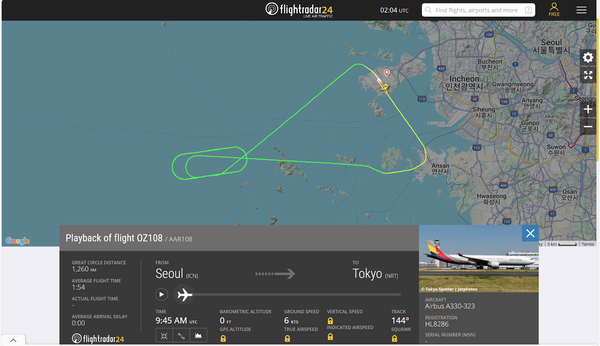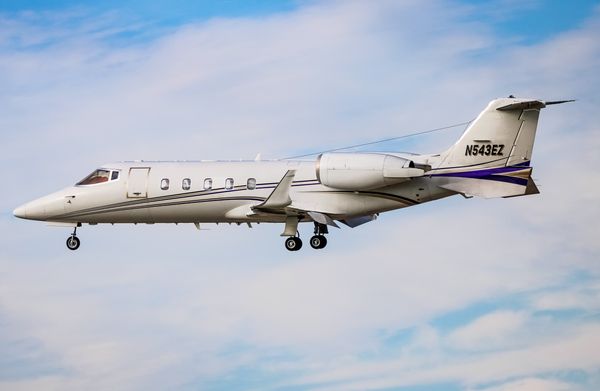
When you think of an airline that never seems to stop growing, there's no better example than Turkish Airlines.
The carrier continues to rapidly expand its already massive global reach, having inaugurated its newest American destination, with more expected to follow soon. Not only this, but Turkey recently placed an enormous aircraft order with rumors that another one would be coming shortly as well.

New Denver Service
On June 11th, Turkish Airlines began service to its newest destination: Denver, Colorado. Denver is the airline's 14th American destination, following Atlanta, Boston, Chicago, Dallas, Detroit, Houston, Los Angeles, Miami, Newark, New York JFK, San Francisco, Seattle, and Washington Dulles.
Turkish now serves Denver three times per week, with the service increasing to four weekly flights by June 9th. The first two flights were operated by the Boeing 777-300ER, even though the Airbus A350-900 was normally used on the route.

Turkish launching flights to Denver is a big deal because, first of all, the 6,130-mile flight from Istanbul is now the longest nonstop route from Denver International Airport. It beats the previous-longest route, United's flight from Denver to Tokyo Haneda, by around 400 miles.
With Istanbul added to Denver's route network, the airport has nonstop service to the most international destinations in its history, specifically 31 across 17 countries. Turkish is the second new international airline to launch service to Denver this year, as Aer Lingus began service from Dublin last month.
The new route to Denver is expected to produce more than $54 million in annual economic impact to Colorado and support the creation of around 350 new jobs across the state, further supporting Denver Airport's position as the key economic engine to the State of Colorado.

The new service was launched at a great time, as passenger demand between Denver and Istanbul has increased by 50% since 2019 for both tourism and medical-related reasons. One of the most notable things about Turkish Airlines is that it serves 126 countries, making it the largest airline in the world.
This further facilitates travelers from Denver because they can get virtually anywhere in the world now with just one stopover in Istanbul. This is especially true for countries that are not served by other airlines serving Denver, such as Afghanistan, Pakistan, and Bangladesh.
More U.S. Destinations?
On the day Turkish inaugurated service to Denver, the airline's CEO Ahmet Bolat hinted at service to even more American destinations on the horizon. While not giving any timelines for when these new routes would start, he did say that the airline's number of U.S. destinations would rise from 14 where it is now to 20.

The four cities that Mr. Bolat mentioned were Minneapolis, Charlotte, Philadelphia, and Orlando. The two other spots that would bring the total destinations to 20 were not mentioned, but we could infer that other major cities like Las Vegas or Phoenix could be possibilities, too.
And it doesn't matter which U.S. airline is the top player at any of these airports because even though Turkish is a Star Alliance partner with United Airlines, they fly to so many airports where United is not a major airline like Detroit and even JFK, where United doesn't fly at all.
Turkish aren't bothered by flying to major OneWorld or SkyTeam hubs because they have the capacity and capabilities to do well wherever they go. They've been performing well in airports like Atlanta, Seattle, Dallas-Fort Worth, and even Detroit.

The Detroit service is relatively new and launched last year. If you thought Denver barely had any international airlines, Turkish was only the eighth international airline to start serving the airport and only the fourth foreign airline to offer long-haul service.
However, Detroit makes a lot of sense as a destination for Turkish because a big demographic of passengers flying the carrier are headed to countries in the Middle East or South Asia, and this is a huge demographic in the Detroit area. In fact, that's exactly why Royal Jordanian has been serving Detroit for so many years.
It's possible to see the airline launch service in Minneapolis and Orlando in the coming years, mainly when we consider demographics. Charlotte and Philadelphia would be cool, too, but those seem like lesser priorities.

It would be amazing to see Turkish in Charlotte since that airport has probably the least international long-haul variety out of any city mentioned so far. They only have Americans and Lufthansa flying long-haul, and Lufthansa is ironically also a Star Alliance partner, so having Turkish come in would be nice.
What's Behind the Growth?
So we've talked about Turkey launching new routes and planning to launch even more, but how are they able to sustain so much growth? Well, it's pretty simple: the airline loves buying new planes.
Back in December 2023, Turkish placed an order for 220 Airbus aircraft consisting of 150 A321neos, 50 A350-900s, 15 A350-1000s, and even five A350 Freighters. Now, a bunch of this order is aimed at replacing older A330 aircraft, but still, even with older A330s being retired, that's a lot of new planes being added.

But wait, that's not all. Reports suggest that Turkey is now talking with Boeing to order 225 more planes, specifically around 150 737 MAXes and 75 787s. The reason for Turkish splitting orders pretty much evenly among the two manufacturers is to mitigate the risk of delayed deliveries.
Both companies have been facing delays in aircraft production, especially Boeing. All of these new planes aren't expected to be delivered for another few years, so in case one manufacturer is still facing delays, Turkish is banking on the fact that the other manufacturer might not be as backed up so they could deliver the new planes without issue.
There are no limits to Turkish Airlines' growth. As of May 2024, the carrier increased its total capacity by 7.3% in terms of available seat kilometers, reaching 21.3 billion that month, which was an increase from 19.9 billion a year prior.

In May 2024 alone, Turkey flew 7.2 million passengers with an average load factor of 79.8%. The airline saw increases in basically all areas, including international-to-international transfer passengers, overall passengers, and even the amount of cargo it was carrying.
By entering markets with decent competition, the airline is able to contribute to an overall lowering of fares and price its tickets competitively. Turkish currently serves 347 destinations worldwide across most countries of any airline.
The future is bright for the carrier, and saying the "sky is the limit" would be an understatement.
Comments (0)
Add Your Comment
SHARE
TAGS
NEWS turkish airlinesturkish airlines denverturkish airlines charlotteturkish airlines orlandoturkiyeturkeyistanbul airportairbusboeingturkish a350RECENTLY PUBLISHED
 Tokyo-Bound Asiana Flight Experiences Engine Failure
An Asiana Airlines flight bound for Tokyo experienced an engine failure, prompting its return to Incheon International Airport.
NEWS
READ MORE »
Tokyo-Bound Asiana Flight Experiences Engine Failure
An Asiana Airlines flight bound for Tokyo experienced an engine failure, prompting its return to Incheon International Airport.
NEWS
READ MORE »
 Learjet Owned By Vince Neil Crashes Into Gulfstream Jet, 1 Fatality Confirmed
On February 10th, around 14:30 local time, a Learjet private jet aircraft crashed into another private jet after landing at Scottsdale Airport (SCF) in Arizona.
NEWS
READ MORE »
Learjet Owned By Vince Neil Crashes Into Gulfstream Jet, 1 Fatality Confirmed
On February 10th, around 14:30 local time, a Learjet private jet aircraft crashed into another private jet after landing at Scottsdale Airport (SCF) in Arizona.
NEWS
READ MORE »
 Seattle Plane Strike 2025: Japan Airlines and Delta Collision Raises Safety Concerns
Seattle-Tacoma International Airport saw a concerning incident on Wednesday morning when a Japan Airlines (JAL) plane clipped a parked Delta Air Lines jet while taxiing. Thankfully, no one was injured, but passengers described the collision as a frightening experience.
NEWS
READ MORE »
Seattle Plane Strike 2025: Japan Airlines and Delta Collision Raises Safety Concerns
Seattle-Tacoma International Airport saw a concerning incident on Wednesday morning when a Japan Airlines (JAL) plane clipped a parked Delta Air Lines jet while taxiing. Thankfully, no one was injured, but passengers described the collision as a frightening experience.
NEWS
READ MORE »



